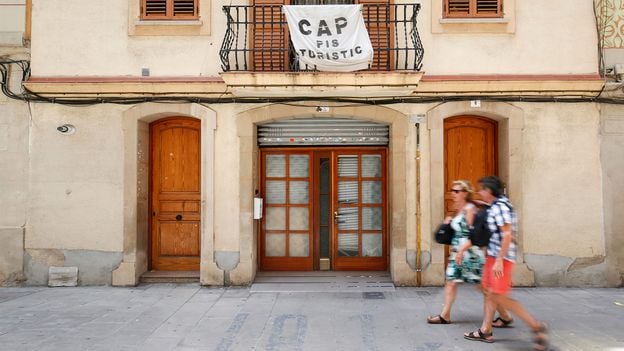On 21 June, Barcelona mayor Jaume Collboni announced plans to ban short term rentals in the city starting in November 2028. The decision is designed to solve what Collboni described as “Barcelona’s biggest problem” – the housing crisis that has seen residents and workers priced out of the market – by returning the 10,000 apartments currently listed as short-term rentals on Airbnb and other platforms into the housing market.
Barcelona is not the only city to be strongly regulating – or even banning – short-term rentals outright. It has been illegal since September 2023 to rent out an apartment as a short-term let in New York City unless you are registered with the city and you are present in the apartment when someone is staying – a change also made to assuage the city’s housing crisis. Berlin banned Airbnbs and short-term rentals back in 2014, bringing them back under tight restrictions in 2018; and in many of California’s coastal cities, including Santa Monica, short-term rentals are either banned or highly restricted.
In British Columbia, Canada, Premier David Eby put the issue succinctly as he clarified new short-term rental rules: “If you’re flipping homes, if you’re buying places to do short-term rental, if you’re buying a home to leave it vacant, we have consistently, publicly, repeatedly sent the message: Do not compete with families and individuals that are looking for a place to live with your investment dollars.”



No the issue is literally the micro rentals. Because before that, we had couchsurfing. Which was all the great things about spending time in a different city staying with locals WITHOUT stupid infrastructure to fuck up the whole country
There was no infrastructure to find these kinds of opportunities unless you knew a guy who knew a guy. The likes of airbnb were what enabled the spread of couchsurfing in places you did not have a prior connection to in the first place. Then bread and breakfasts and smaller hotels started getting onto the platform as it was a way for them to get customers, not having the name recognition and own infrastructure that big hotel chains have. Then, years later, came the fucks buying up multiple apartments to turn them into short-term rentals.
I’ll readily blame airbnb for not nipping that behaviour in the bud themselves but also that’s just not how VC investment works, they had no chance at that point. I’m generally not a fan of how Silicon Valley companies act regarding regulations but unlike e.g. uber airbnb hasn’t been trying to skirt them and find loopholes left and right, only thing they’ve been whinging about, particularly in Berlin, is that the administration doesn’t have its IT shit together and is generally slow, and pointed to Hamburg of all places as something to imitate. Very smart of them: “You’re worse than Hamburg” is one of the few viable ways to motivate Berliners to do anything. The other is to dangle VIP tickets to Berghain in front of their noses.